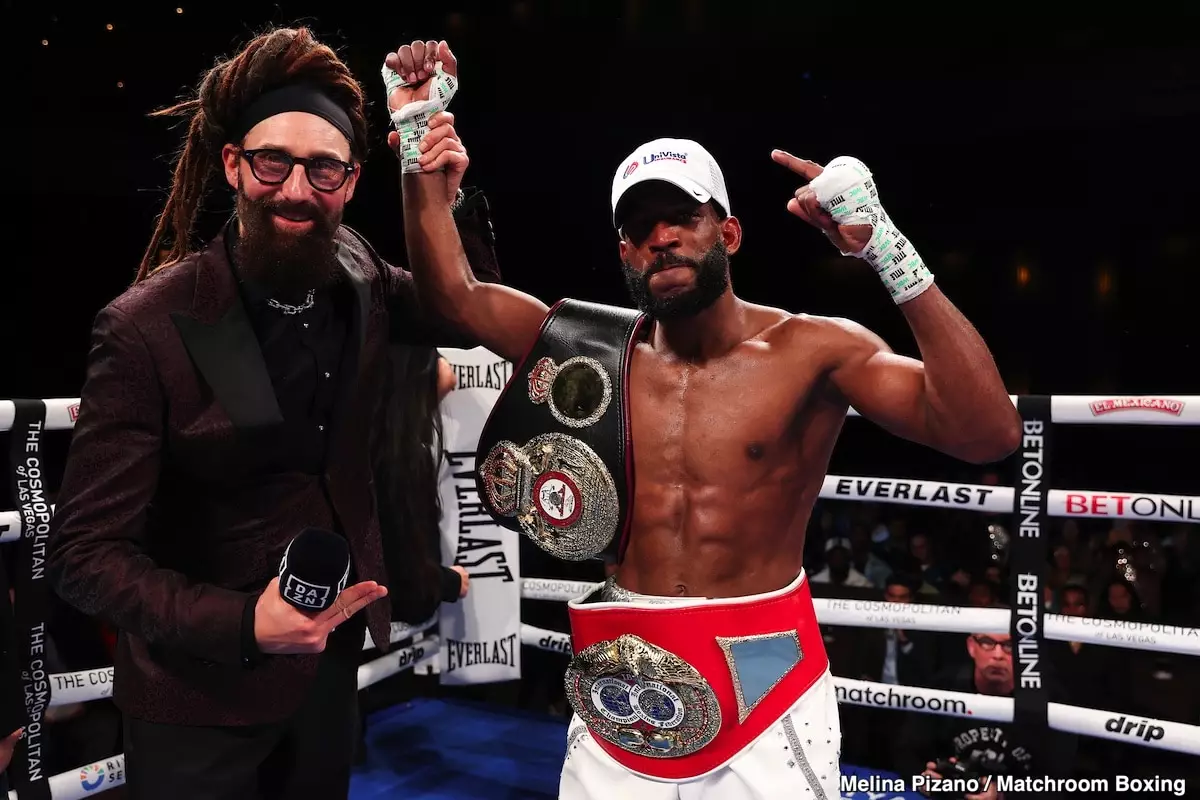In the world of boxing, the delicate balance between ambition and risk shapes the careers of many athletes. An intriguing case study is presented through Keyshawn Davis, an undefeated professional fighter who finds himself at a crossroads when it comes to facing his amateur rival, Andy Cruz. The narrative surrounding Davis paints a clear picture of an athlete struggling with external pressure, internal fear, and the burden of potential failure, all while attempting to navigate the cutthroat business of professional boxing.
Keyshawn Davis is no stranger to success; he boasts a record of 12 wins alongside 8 knockouts, demonstrating impressive prowess in the ring. However, his history is complicated by a record against Cruz that is less than flattering—four defeats in their amateur bouts cast a long shadow over Davis’s confidence. Speak to him regarding a potential professional showdown, and his responses reveal a myriad of justifications—some might argue these are excuses—rooted deeply in fear of humiliation and career jeopardy.
Davis finds himself in a precarious position; losing to Cruz for a fifth time could jeopardize his status and hinder his financial success within Top Rank. This looming threat undoubtedly contributes to his reticence about facing the Cuban fighter in the professional arena. Instead of embracing the challenge, Davis seems resolute in casting Cruz as unworthy of his time, stating pointedly, “He’s really not that slick. He gets hit with jabs and all types of stuff.”
This reluctance is not solely based on personal animus. For Davis, a calculated approach seems to outweigh the potential glory of a rematch. In the highly competitive landscape of boxing, fighters are acutely aware of who can bolster their brand and elevate their careers. Instead of pursuing the fight with Cruz, who he perceives as flawed, Davis aims for bigger names like Gervonta “Tank” Davis. Notably, there is no indication that “Tank” has any inclination to engage with Davis, thus leaving the younger fighter in the realm of hypotheticals.
Davis’s argument positions Cruz as simply not a worthy opponent—a statement that invites scrutiny. Cruz, despite being 5-0, represents an unforgiving challenge for Davis. Yet in Davis’s eyes, engaging with Cruz isn’t only a step back in prestige but also a potential business misfire; pursuing “stars” instead aligns more strategically with both his career aspirations and the promotional juggernaut of Top Rank.
At the core of Davis’s narrative is a philosophical question significant in sports: What does it mean to be a true fighter? Are boxers defined solely by their records, or is the heart behind the punches equally crucial? Davis expresses his desires—but his resistance to fight Cruz suggests an underlying conflict between the athlete’s ambition and the emotional turmoil of past defeats.
Davis states, “I want to fight this dude… to prove, ‘I will knock you out and that’s what’s going to happen.’” Nonetheless, that desire is clouded by apprehension—his insistence that Cruz must “put some work in” before being deserving of a showdown underlines not only a dismissive attitude toward his opponent’s efforts but also an admission of internal conflict. The emotional weight of failing to overcome Cruz looms large, making it easier to vilify his rival rather than face him head-on.
As Davis prepares to challenge WBO lightweight champion Denys Berinchyk, his focus is understandably on climbing the ranks rather than settling old scores with Cruz. This fight, broadcasted live from the Madison Square Garden Theater, may well serve as a litmus test for Davis: how will he perform under the bright lights away from the shadows of his past? Each success pushes him away from Cruz and towards stardom, cementing his place within the sport.
However, should Davis continue to avoid Cruz while grappling with his past, unanswered questions about a potential matchup will linger indefinitely. Boxing thrives on rivalries, and without resolving this intriguing conflict, Davis risks missing not only a potential lucrative fight but an opportunity to solidify his legacy. In boxing, as in life, confronting fears can be the very catalyst for true greatness; a lesson that Keyshawn Davis might need to learn to fulfill his undeniable potential.


Leave a Reply